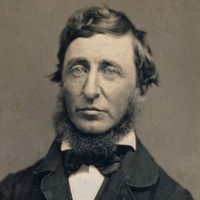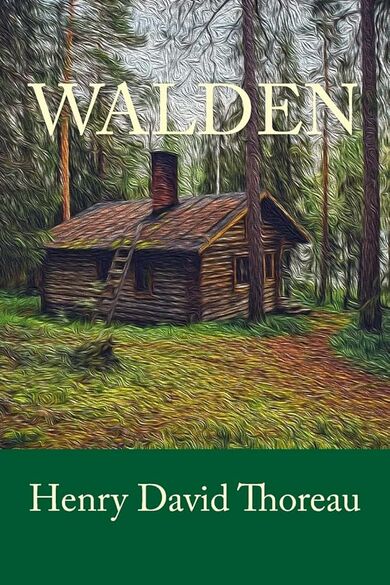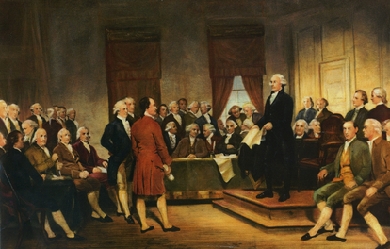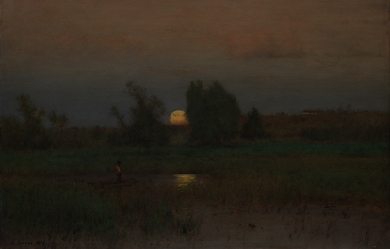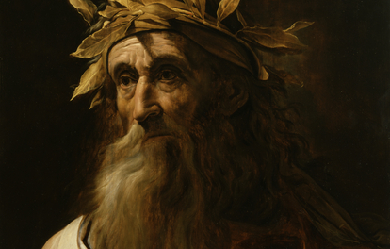After the Death of John Brown
So universal and widely related is any transcendent moral greatness, and so nearly identical with greatness everywhere and in every age—as a pyramid contracts the nearer you approach its apex—that, when I now look over my commonplace book of poetry, I find that the best of it is oftenest applicable, in part or wholly, to the case of Captain Brown. Only what is true, and strong, and solemnly earnest will recommend itself to our mood at this time. Almost any noble verse may be read, either as his elegy or eulogy, or be made the text of an oration on him. Indeed, such are now discovered to be the parts of a universal liturgy, applicable to those rare cases of heroes and martyrs for which the ritual of no church has provided. This is the formula established on high—their burial service—to which every great genius has contributed its stanza or line. As Marvell wrote:
And fear has coward churchmen silenced,
Then is the poet’s time; ’tis then he draws,
And single fights forsaken virtue’s cause;
He, when the wheel of empire whirleth back,
And though the world’s disjointed axle crack,
Sings still of ancient rights and better times,
Seeks suffering good, arraigns successful crimes.”
The sense of grand poetry, read by the light of this event, is brought out distinctly like an invisible writing held to the fire:
To the cold tomb
Only the actions of the just
Smell sweet and blossom in the dust.
We have heard that the Boston lady20 who recently visited our hero in prison found him wearing still the clothes, all cut and torn by sabres and by bayonet thrusts, in which he had been taken prisoner; and thus he had gone to his trial; and without a hat. She spent her time in prison mending those clothes, and, for a memento, brought home a pin covered with blood.
What are the clothes that endure?
Are works of mercy to the poor;
And neither tetter, time, nor moth
Shall fray that silk or fret this cloth.
The well-known verses called “The Soul’s Errand,” supposed, by some, to have been written by Sir Walter Raleigh when he was expecting to be executed the following day, are at least worthy of such an origin, and are equally applicable to the present case. Hear them:
Upon a thankless arrant;
Fear not to touch the best;
The truth shall be thy warrant:
Go, since I needs must die,
And give the world all the lie.
Go, tell the Court it glows
And shines like rotten wood;
Go, tell the Church it shows
What’s good, and doth no good:
If church and court reply,
Give church and court the lie.
Tell potentates they live
Acting by other’s actions;
Not loved, unless they give,
Not strong but by their factions:
If potentates reply,
Give potentates the lie.
Tell men of high condition,
That rule affairs of state,
Their purpose is ambition,
Their practice only hate;
And if they once reply,
Spare not to give the lie.
Tell Zeal it lacks devotion;
Tell Love it is but lust;
Tell Time it is but motion;
Tell Flesh it is but dust;
And wish them not reply,
For thou must give the lie.
Tell Age it daily wasteth;
Tell Honor how it alters;
Tell Beauty how it blasteth;
Tell Favor how she falters;
And, as they shall reply,
Give each of them the lie.
Tell Fortune of her blindness;
Tell Nature of decay;
Tell Friendship of unkindness;
Tell Justice of delay;
And if they dare reply,
Then give them all the lie.
And when thou hast, as I
Commanded thee, done blabbing,
Although to give the lie
Deserves no less than stabbing,
Yet, stab at thee who will,
No stab the soul can kill.
“When I am dead,
Let not be writ,”
Nor bell be tolled;21
“Love will remember it
When hate is cold.”
Mr. Thoreau also read these passages, selected for the occasion by another citizen of Concord:
By all their country’s wishes blest!
When Spring, with dewy fingers cold,
Returns to deck their hallowed mould,
She there shall dress a sweeter sod
Than Fancy’s feet have ever trod.
By Fairy hands their knell is rung,
By forms unseen their dirge is sung;
There Honor comes, a pilgrim gray,
To bless the turf that wraps their clay,
And Freedom shall awhile repair,
To dwell a weeping hermit there.
He the more fortunate; yea, he hath finished;
To him there is no longer any future;
His life is bright—bright without spot it was,
And cannot cease to be. No ominous hour
Knocks at his door with tidings of mishap.
Far off is he, above desire and fear;
No more submitted to the change and chance
Of the unsteady planets. O, ’tis well
With him; but who knows what the coming hour,
Veiled in thick darkness, brings for us?
A few strong instincts, and a few plain rules,
Among the herdsmen of the hills, have wrought
More for mankind at this unhappy day,
Than all the pride of intellect and thought?
Like some of the simple great ones gone
Forever and ever by;
One still strong man in a blatant land;
Whatever they call him what care I—
Aristocrat, democrat, autocrat—one
Who can rule, and dare not lie.
Where life and death is; there’s not any law
Exceeds his knowledge, neither is it needful
That he should stoop to any other law;
He goes before them, and commands them all,
That to himself is a law rational.
Of extreme peril, when a hollow image
Is found a hollow image, and no more,
Then falls the power into the mighty hands
Of Nature, of the spirit giant-born
Who listens only to himself, knows nothing
Of stipulations, duties, reverences,
And, like the emancipated force of fire
Unmastered, scorches, ere it reaches them,
Their fine-spun webs.
Who serveth not another’s will,
Whose armor is his honest thought,
And simple truth his utmost skill!—
Whose passions not his masters are,
Whose soul is still prepared for death,
Not tied unto the world with care
Of princes’ ear or vulgar breath;—
Who hath his life from rumors freed,
Whose conscience is his strong retreat,
Whose state can neither flatterers feed,
Nor ruin make oppressors great;—
Who envies none whom chance doth raise,
Or vice; who never understood
How deepest wounds are given with praise;
Nor rules of state, but rules of good;—
This man is freed from servile bands
Of hope to rise or fear to fall;
Lord of himself, though not of lands,
And having nothing, yet hath all.
You, Agricola, are fortunate, not only because your life was glorious, but because your death was timely. As they tell us who heard your last words, unchanged and willing you accepted your fate; as if, as far as in your power, you would make the emperor appear innocent. But, besides the bitterness of having lost a parent, it adds to our grief, that it was not permitted us to minister to your health... to gaze on your countenance, and receive your last embrace; surely, we might have caught some words and commands which we could have treasured in the inmost part of our souls. This is our pain, this our wound.... You were buried with the fewer tears, and in your last earthly light your eyes looked around for something which they did not see.
If there is any abode for the spirits of the pious, if, as wise men suppose, great souls are not extinguished with the body, may you rest placidly, and call your family from weak regrets and womanly laments to the contemplation of your virtues, which must not be lamented, either silently or aloud. Let us honor you by our admiration rather than by short-lived praises, and, if nature aid us, by our emulation of you. That is true honor, that the piety of whoever is most akin to you. This also I would teach your family, so to venerate your memory, as to call to mind all your actions and words, and embrace your character and the form of your soul rather than of your body; not because I think that statues which are made of marble or brass are to be condemned, but as the features of men, so images of the features are frail and perishable. The form of the soul is eternal; and this we can retain and express, not by a foreign material and art, but by our own lives. Whatever of Agricola we have loved, whatever we have admired, remains, and will remain, in the minds of men and the records of history, through the eternity of ages. For oblivion will overtake many of the ancients, as if they were inglorious and ignoble; Agricola, described and transmitted to posterity, will survive.
Spoken at the services held in Concord, Mass., December 2, 1859, in commemoration of John Brown; first published in Echoes of Harper’s Ferry, 1860.

